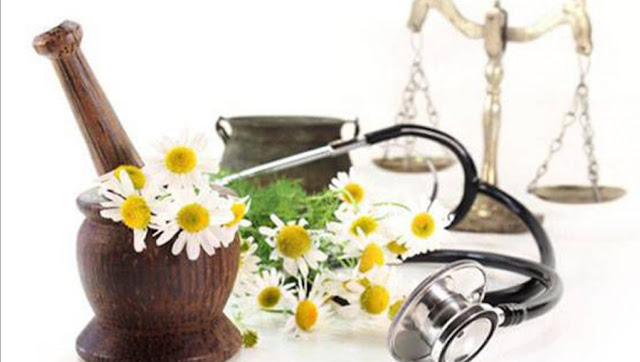
Naturopathic philosophy serves as the basis for naturopathic practice. The current scope of naturopathic practice includes, but is not limited to:
Therapeutic Fasting & Clinical Nutrition : A cornerstone of naturopathic practice is that food is the best medicine. Clinical fasting & nutrition is a very important therapy in Naturopathy. The simplest way of using nutrition is to work with the patient in improving their diet. This is usually done after the naturopathic physician studies the patient’s eating habits. This often involves asking the patient to write down what they ate, and this includes: quantities, types of food, and beverages.

Nutrition is the building block of the body’s tissues and proper levels of nutrients are essential to normal physiological function. Naturopathic physicians supplement the diet with concentrated preparations of vitamins, minerals and antioxidants. Naturopathic physicians use dietetics, natural hygiene, fasting, and nutritional supplementation in their practice.
Botanical Medicine : Many plant substances are powerful medicines. Whereas a single chemically derived drug may address a single problem, botanical medicines are able to address a variety of problems simultaneously. Their organic nature makes botanicals compatible with the body’s own chemistry; hence, they can be gently effective with fewer toxic side effects. Their availability and safety make them more useful and affordable for home care of chronic conditions.

Hydrotherapy : Hydrotherapy is an integral part of naturopathic practice, and a very traditional one. The early naturopathic doctors made great use of hydrotherapy in their practice. As the name implies hydrotherapy involves the use of water as a healing agent. Water has a long history of use in medicine. Virtually every medical tradition has some kind of hydrotherapy as a part of its therapeutic arsenal. The original idea of hydrotherapy in Naturopathic medicine was to assist in the process of detoxification. It was also used to stimulate the healing powers of the body. There are specific hydrotherapy techniques such as: wet sheet packs; constitutional treatments (alternating hot and cold to back / chest and abdomen); steam baths and many other types and variants of treatment applications. Naturopathy grew out of a central European “nature cure” tradition, that involved curative water treatments.

Physical Medicine : The naturopathic physician traditionally has used “all of nature’s forces” and this includes: heat, light, vibration, electricity, magnetic fields and more. This is still a part of naturopathic medicine. Various therapies include: Electrotherapies; Therapeutic ultrasound including phonophoresis; Interferential Current Therapy; Russian muscle stimulation; Iontophoresis; T.E.N.S. stimulation; Diathermy; Magneto therapy; Manual Therapies; Spinal and peripheral joint manipulation; Swedish Massage; Deep massage; Stretching; Muscle energy technique; Trigger point therapy/massage. These therapies are carefully applied, but can help with general healing, reduction of pain, and improvement of joint and muscle function.

Oriental Medicine : Oriental medicine is a complementary philosophy of natural healing brought to the medical community, largely through naturopathic medicine. Asiatic and Oriental systems offer an important understanding of the unity of the body and mind, which add to those of the West. Unification between philosophy and practice in the East and West offers health benefits for all of our cultures. Chinese Medicine and Ayurveda provide ancient understandings and methods of treatment. These promise to help harmonize the imbalances present in disease conditions and restore the dynamic balance of health.
Acupuncture works very effectively when combined with other therapies to treat various conditions including digestive complaints, hormonal imbalances, mood disturbances, skin conditions and Headaches. Acupuncture may also be used in the treatment of acute or chronic pain. Specialized acupuncture techniques are especially useful for muscle injuries, trigger point release, muscular tension, headaches and migraines.

Lifestyle Counseling : Lifestyle counseling is a foundational component of naturopathic therapy and yet, it is not a singular approach or set of procedures. Practically, all naturopathic physicians incorporate lifestyle counseling into their practice. This term encompasses a wide array of skills which have as their central theme assisting the patient in making changes to their thought and action which supports the healing process. In this respect, the naturopathic physician plays a role of teacher, coach, and source of information. Naturopathic physicians actively listen and try to understand the obstacles to change and healthy adaptation in their patient. A tenet of naturopathic medicine is that emotional health and physical health are interdependent. Naturopathic practice includes the integrated use of counseling techniques along with such methods as stress management and biofeedback when indicated.

Naturopathic Obstetrics: Naturopathic physicians provide natural childbirth care in either an out-of-hospital setting, or in a hospital. They offer prenatal and postnatal care using modern diagnostic techniques. The naturopathic approach strengthens healthy body functions so that complications associated with pregnancy can be prevented or minimized.
Psychological Medicine: Mental attitudes and emotional states may influence, or even cause, physical illness. Counseling, nutritional balancing, yoga, stress management, hypnotherapy, biofeedback, and other therapies are used to help patients heal on levels other than only the physical.

Other Modalities : The modalities commonly practiced include: Acupuncture, Applied kinesiology, Botanical medicine, Brainwave therapies, Chelation therapy for atherosclerosis, Colonic enemas, Color therapy, Cranial osteopathy, Hair analysis, Homeopathy, Iridology, Live blood analysis, Nature cure – a range of therapies based upon exposure to natural elements such as sunshine, fresh air, heat, or cold, Nutrition (examples include vegetarian and whole food diet, fasting, and abstention from alcohol and sugar), Ozone therapy, Physical medicine (includes naturopathic, osseous, and soft tissue manipulative therapy, sports medicine, exercise and hydrotherapy), Psychological counseling (examples include meditation, relaxation, and other methods of stress management, Public health measures and hygiene, Reflexology, Rolfing, and traditional Chinese medicine.






































.jpg)

